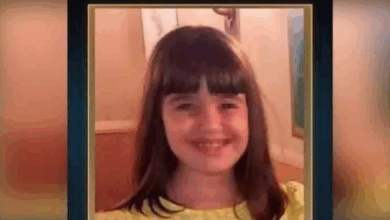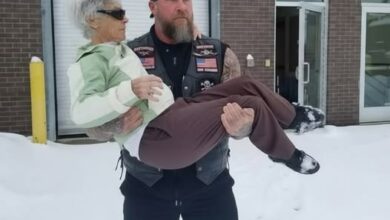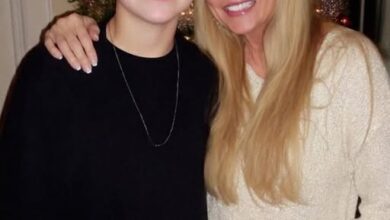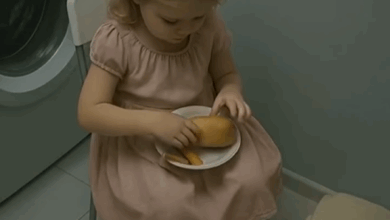
Mom Hosted Dinner Every Sunday Until One Week She Texted, Please Dont Come Today, I Rushed over and Screamed When I Opened the Door
For as long as I could remember, Sundays were sacred in our family. Every week, without fail, my mom would host a big dinner that brought all of us together—my husband and kids, my brother Brian and his family. The smell of roast chicken would fill the air before we even stepped through the door, and the old wooden kitchen table would groan under the weight of memories, laughter, and second helpings.
Mom had become our anchor after Dad passed away three years ago. She grieved hard, but somehow she still found the strength to hold us together. Brian and I made it a point to check in during the week—me on Tuesdays, him on Fridays—but Sundays were special. It was our family’s ritual, and Mom lived for it.
So when I woke up that Sunday morning to a text that simply read, “Please don’t come today,” I knew something was off. No smiley face, no context—just seven words that felt like a slap. My gut twisted as I stared at my phone. I texted back instantly. No response. Then Brian messaged me: “She’s not answering. I’m heading over.” I was already grabbing my keys.
The drive to Mom’s house felt twice as long as usual. Her place looked… wrong. The porch light was still on, and the curtains were drawn tight, like she didn’t want the world to see in—or out. I pounded on the door, calling her name. Nothing. My hands trembled as I pulled the spare key from my purse, the one she gave me “just in case.” This felt like one of those cases.
The second I stepped inside, I froze. A man was sitting at the kitchen table. He had his back to me, but the shirt he wore—the light blue button-down—I had given that exact shirt to my dad for Father’s Day years ago. My heart leapt into my throat. Mom stood at the counter, silently slicing carrots like she was in a trance.
“Mom?” I whispered, already terrified by the answer I didn’t want.
She didn’t turn. “I didn’t want you to come today,” she said, barely above a whisper. “Why didn’t you listen?”
Brian burst through the front door right behind me and stopped cold. “Who the hell is that?” he asked, staring at the stranger in Dad’s shirt.
The man turned slowly—and I screamed.
It was our father. Or at least, it looked exactly like him. The same eyes. The same smile. But something wasn’t right. The lines on his face were deeper, and his expression held years of sorrow. Mom finally turned, tears streaming down her cheeks.
“This is… your uncle,” she said. “Your father’s twin brother.”
Brian and I stood frozen. “Dad didn’t have a brother,” I said. “You told us that.”
“He did,” she replied quietly. “But your father didn’t want you to know. We kept James a secret.”
We sat around the table in stunned silence as Mom told us everything. She had met James first—when they were young, before she ever dated our father. He was charming, wild, and spontaneous. And then, one day, he disappeared. No note. No goodbye. She was heartbroken. Dad, her quiet and dependable friend, had stepped in and helped her heal. They fell in love. Or at least, that’s what she thought.
Years into their marriage, during a difficult patch, she admitted something to Dad: that she had loved James first. That maybe she’d married him partly out of heartbreak and anger. But motherhood had changed everything. It made her realize that she didn’t just love Dad—he was her soulmate.
James, the long-lost twin, sat across from us, still wearing that damned shirt. “I didn’t know you existed,” he said, looking down at his hands. “Your father never forgave me, and I respected that. I stayed away. But I never stopped thinking about her.”
I could hardly look at him. “Why now?” I asked.
“I needed to apologize,” he said. “And maybe… to ask for a second chance.”
Brian stood abruptly, his voice sharp. “You don’t get to walk back into someone’s life after thirty years and ask for that.”
James nodded, stood, and began unbuttoning the blue shirt. “This doesn’t belong to me anyway,” he said softly.
We asked him to leave. Not out of anger—but because the wound was too fresh, the timing too wrong.
After the door closed behind him, Mom broke down on the couch. She kept whispering, “I’m so sorry.” We comforted her the best we could.
“No, Mom,” I told her gently. “You gave us a beautiful childhood. You loved Dad. We know that.”
“I just forgot who I used to be,” she whispered. “Seeing James didn’t bring back old love—it brought back a version of me I’d buried. And it reminded me why I chose to let her go.”
That night, we stayed. Brian ordered pizza. I made tea. It wasn’t roast chicken, but it didn’t matter. We were together. And that was enough.
At 9 p.m., a new message popped up in our group chat:
“Dinner next Sunday. 6 p.m. Bring tupperware. And maybe a hug.”
Mom was back. And so were we.




